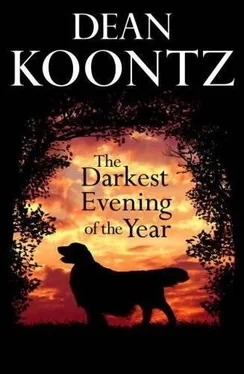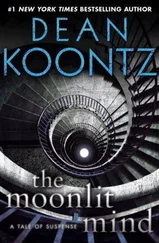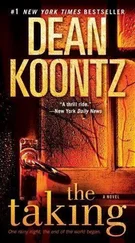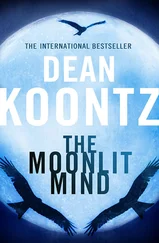People liked him in part because of his appearance. Pudgy, with a sweet dimpled face and with curly blond hair as thin now as it had been when he was a baby, he looked huggable.
And people liked Billy because Billy genuinely liked people. He didn’t look down on them because of their ignorance or foolishness, or because of their idiot pride or their pomposity, but delighted in them for what they were: characters in the greatest irony-drenched, dark-comic novel of all, life .
He got out of the Land Rover and said, “Look at you, you’re Hannibal Lecter.”
Georgie mangled the line from the movie about eating someone’s liver with fava beans and a good Chianti.
“Stop it, stop,” Billy said, “you’ll have me pissing my pants.”
He hugged Georgie Jobbs, asked how his brother Steve was doing, and Georgie said “You crazy sonofabitch,” and they threw some playful punches at each other.
The best private investigators had scruples and a regard for the law. Two steps down from them were guys like Vern Lesley and Bobby Onions.
Georgie Jobbs was an entire flight down the stairs from Lesley and Onions. He had always wanted to be a PI, but he didn’t have the patience to meet the standards and pass the test. He also didn’t like the idea of being able to carry only a licensed gun, or of giving anyone a legitimate reason to call him a dick.
To his credit, he was a reliable guy, as long as you didn’t ask him to do a piece of work that involved algebraic equations or, for that matter, any math at all.
While Lesley and Onions were on their way to the meet in the Mojave, Georgie had burglarized their places of business. Vernon Lesley’s place of business had been the crappy apartment in which he lived, and Bobby Onions Investigations occupied a backstairs room above a Thai restaurant.
Georgie had stolen the brains of their computers, their files-which were thin-appointment calendars, notebooks, Rolodex cards, and anything on which they had scribbled notes of any kind whatsoever. Together, he and Billy transferred everything from the Suburban to the cargo space of the Rover.
Because Georgie was as thorough as he was thick, Billy was confident that when authorities eventually began to investigate the disappearances of the two PIs, they would find nothing linking them to a client named Billy Pilgrim.
Billy Pilgrim wasn’t his true name, but he used it a lot, and he preferred to be able to go on using it because it had sentimental value to him. Besides, his boss-the wealthy heir turned successful criminal entrepreneur-was adamant about never leaving a loose end, and could not afford to leave one.
Georgie had also brought two rigid-wall Samsonite suitcases that Billy had requested, and he handled these with a respect bordering on awe.
“I’d never have thought I’d have so much at any one time, ever,” Georgie said.
“It’s a day you’ll remember,” Billy agreed.
“I gotta say, man, it makes me feel good, you trusted me with a delivery like that.”
“We go back a long way, Georgie.”
“So long I can’t count that far,” said Georgie, which was nearly true.
After he examined the contents, Billy closed the two suitcases, locked them, and put them not in the cargo space of the Rover, but on the floor in the backseat.
Billy paid Georgie in cash, and while Georgie tucked the money in a jacket pocket, Billy shot him three times point-blank with a silencer-equipped pistol.
He recovered the money and loaded Georgie’s body into the Rover with all the other crap. He arranged a blanket over it.
At fifty, he could not manhandle a corpse as easily as he’d done at thirty. He needed every trick he had learned over the years. If he hadn’t delighted in his work, he might not have gotten the job done.
After he closed the tailgate on the Rover, he did not bother to search the Suburban. He knew that Georgie Jobbs had not kept an appointment book and had not written any notes to himself, because Georgie couldn’t have spelled Jesus if that had been the one thing he’d been required to do to get into Heaven.
Georgie might one day have bragged to someone about sweeping the two private detectives’ offices on Billy’s behalf, but not now. The last tenuous connection between Billy Pilgrim and Amy Redwing had been erased-or soon would be.
Behind the wheel of the Rover, without headlights, Billy cruised the radiant concrete riverbed, happy that he had no agent problems, no publishing deadlines, no literary critics sharpening their knives for him.
Two e-mails from Pigkeeper were in the box when Brian and Amy returned with the dogs.
The first was succinct: It will be me.
Reading the screen over Brian’s shoulder, Amy said, “What’s it mean to you?”
“Nothing.”
He opened the second message: Did I say STAND BY?
Brian sent a reply: Standing by.
When Amy sat in the second office chair, Fred levered himself off the floor to come prop his chin on her thigh and roll his eyes up at her.
“Good Fred,” she said, rubbing his face. “Good, good Fred.”
Witness to this, Ethel roused herself from the brink of a nap and came to prop her chin on Amy’s other thigh.
“Oh, yes, yes, Ethel is good, too. Good, pretty, pretty Ethel.”
Nickie had not settled on the floor when they returned. She sat beside Brian, allowing him the honor of gently scratching her head, but staring at the computer with the intensity that she had brought to the study of a squirrel in the park.
He was looking down at her eyes, which met his directly, wondering why earlier they had driven him to draw obsessively and why they compelled his attention now as well, when the computer signaled the receipt of an e-mail.
He read it aloud to Amy: “’It will be me.’”
“That’s it?”
The telephone rang. The caller ID was blocked.
Brian didn’t reach for the receiver.
“It’s her,” Amy said.
“I haven’t spoken to her in ten years.”
No matter how much he wanted to spring Hope from her mother’s control, the prospect of taking another step back into Vanessa’s universe was daunting.
The phone rang again, then a third time, and when he picked it up, he said simply, “Yes?”
“Bry, have any of the buildings you designed fallen down yet?”
“Not yet,” he said, determined not to let her anger him or frustrate him into a response that might jeopardize his chance to recover Hope.
“It’s only a matter of time, Bry. We know what happens when you conceive something.”
He had forgotten the extraordinary quality of her voice, an instrument of smoke and steel.
“I think it’s time,” she said, “for you to take responsibility for the consequences of your funky sperm, don’t you?”
He glanced at Amy, but then he felt that somehow he sullied her merely by looking at her when he was on the phone with Vanessa, and he averted his eyes.
“Whatever you want is all right with me, Vanessa. No negotiating on my end. Full transparency of my savings, checking, investments-you’ll know I’m not holding back anything.”
“I don’t want your money, Bry. You live above your offices. If your folks weren’t dead, you’d probably be living with them. Whatever you’ve got, what would it buy me? A nice coat, some shoes?”
She couldn’t have inferred his living arrangements from anything he had said in the e-mails they had exchanged over the years.
“You said you wanted something from me,” he reminded her.
“I have this guy now, he’s got more money than God. He’s even richer than the creep your baby would have gotten me if she hadn’t been a freak. Money’s no problem. You know, Bry, there was a time when what I wanted was you dead.”
Читать дальше
Конец ознакомительного отрывка
Купить книгу










